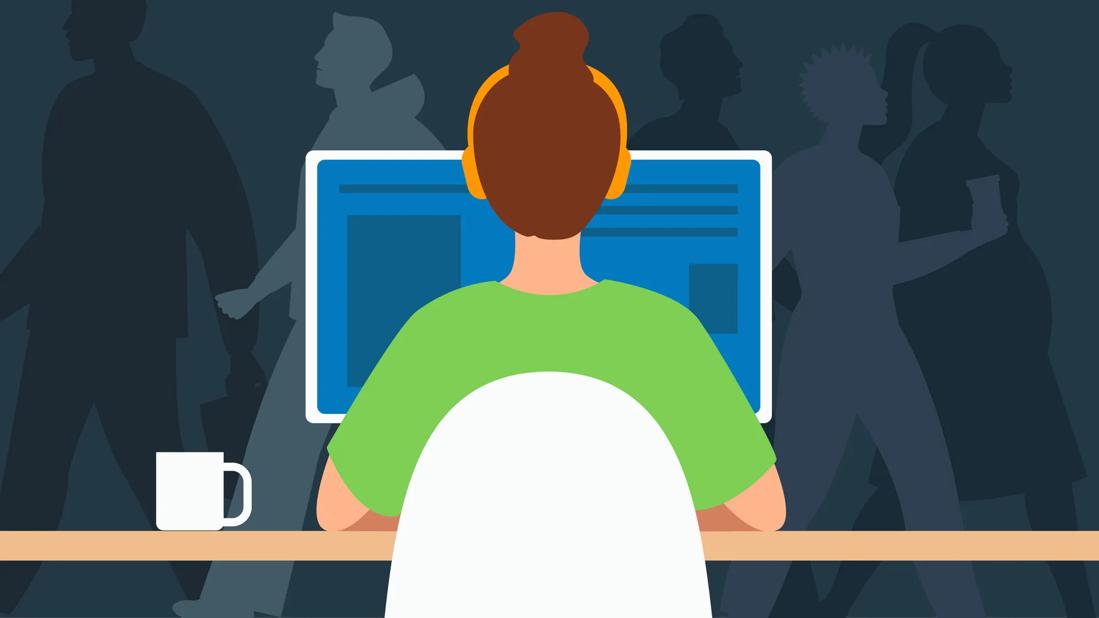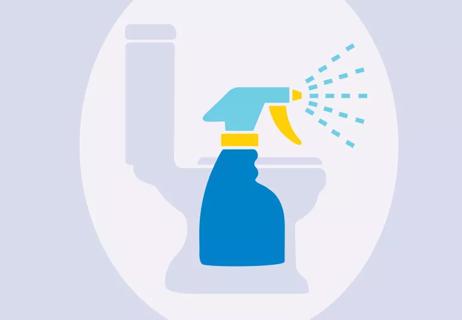Stretches, exercises and posture changes can help address lower cross syndrome

Odds are, you’ve dealt with a bout of gluteus medius tendinosis. It’s the fancy medical term for that feeling you get after spending hours sitting, whether it’s at work, watching a movie or riding in a car.
Advertisement
Cleveland Clinic is a non-profit academic medical center. Advertising on our site helps support our mission. We do not endorse non-Cleveland Clinic products or services. Policy
But the more common name for the condition is dead butt syndrome.
How can you avoid this literal pain in the … well, you know where? Chiropractor Andrew Bang, DC, has some advice to help restore life to beleaguered buns.
Video content: This video is available to watch online.
View video online (https://cdnapisec.kaltura.com/p/2207941/sp/220794100/playManifest/entryId/1_5idjywpy/flavorId/1_5f3sgelj/format/url/protocol/https/a.mp4)
Dead butt syndrome (or lower cross syndrome) strikes when muscle weakness creates an imbalance in your derriere. That leads to the “dead” feeling that’s the source of the condition’s colorful nickname.
Sitting for long periods in front of a desk or in a car is the most common trigger, explains Dr. Bang. Staying in that sedentary position gradually weakens the gluteus medius, one of three primary muscles in your buttocks.
The gluteus medius works to stabilize your hips and pelvis. When that muscle loses strength, it may result in immediate numbness or tingling throughout your buttocks but not in your legs or feet. (That explains those awkward first steps after sitting for hours.)
But over time, dead butt syndrome can grow into larger issues with buttocks, hip and lower back pain.
“There’s a real snowball effect when that weakness builds,” says Dr. Bang. “While dead butt syndrome may be a funny term, it can grow into some serious health issues that affect your ability to move.”
Advertisement
The problem can strike because of other reasons, too. Athletes (especially avid runners) who forgo cross-training and regular stretching can develop lower cross syndrome due to muscle tightness.
Lower cross syndrome is relatively simple to prevent or undo if prolonged sitting is the cause. Dr. Bang has a few recommendations regarding your work routine, plus some exercises and stretches.
If you work at a desk, chances are, you sit a lot. Fine-tuning HOW you sit can protect against dead butt syndrome. Dr. Bang offers these suggestions to perfect your posture while logging on-the-job hours from a chair.
While sitting may seem like a less-than-strenuous activity, you’re actually overloading muscles.
“Even though it doesn’t feel demanding to sit, one group of muscles is overworking because they’re holding you upright while another group of muscles isn’t working at all,” explains Dr. Bang.
Regularly standing up and moving around can give those “sitting muscles” a break while activating others. That includes your hip flexors, a group of muscles connecting your lower back, pelvis, hips and groin.
Aim to work at least 20 minutes of standing or walking into every hour in the office.
“It can be as simple as standing up while on the phone or walking over to talk with a coworker,” he continues. “These are little things, but the benefits of going from sitting to moving add up throughout the day.”
Set an alarm as a reminder to get up and stretch every half-hour or so, he suggests. A standing desk is also an effective way to get you out of your chair.
If muscle weakness leads to dead butt syndrome, the solution seems simple: Make your rump stronger. Dr. Bang recommends these four exercises to strengthen your glutes and surrounding muscles.
The instructions for this can be summed up in three words: Squeeze your booty.
Advertisement
Turn your legs into scissors in this exercise focused on your core muscles and hip flexors.
Use resistance bands or ankle weights to make the exercise more challenging.
Give your butt a “lift” with this exercise.
The descriptive “clamshell” exercise mimics a clam’s open-and-close shell movement. The strengthening exercise targets your hip and glute muscles. Here’s how to do it:
Advertisement
Place a resistance band around your thighs if you want to make the exercise more challenging.
Stretches can address muscle tightness that fuels lower cross syndrome. The key, though? Make sure you hold the stretch for one to two minutes to get the full benefit. (“Most people don’t do it long enough,” cautions Dr. Bang.)
So, set a timer for at least 60 seconds and give these two stretches a try.
If your lower back is tight, odds are, your hip flexors are tight, too, says Dr. Bang. This simple stretch can loosen those muscle groups up — and you can do it while sitting in your desk chair!
Advertisement
Tight hip flexors can dial up the discomfort of dead butt syndrome. This stretch can help bring the pain level down.
We’re living in an increasingly sedentary world where we spend long hours sitting. That inactivity can lead to dead butt syndrome and eventually even compromise your mobility. But it doesn’t have to be that way.
“Just find some time to get up,” advises Dr. Bang. “Your body works best when it’s moving. Motion is lotion.”

Sign up for our Health Essentials emails for expert guidance on nutrition, fitness, sleep, skin care and more.
Learn more about our editorial process.
Advertisement

Sitting for long hours, like at your desk job, can make your butt sag — among other effects

You may be causing the problem yourself

To avoid sleep deprivation and shift work sleep disorder, try adopting habits that minimize light exposure and prioritize daytime sleep

This behavior is usually a sign that the other person doesn’t know how to handle conflict or is prone to being passive-aggressive

Try breaking down tasks into manageable to-do lists and relying on time management techniques

It can be harder to let go when you’ve invested time, energy and emotions — but it might be the healthier choice long term

Pointing out how their behavior makes you feel and giving them projects to own can help you both

Working beyond your limits can increase illnesses and accidents related to your physical and mental well-being

Even small moments of time outdoors can help reduce stress, boost mood and restore a sense of calm

A correct prescription helps your eyes see clearly — but as natural changes occur, you may need stronger or different eyeglasses

Both are medical emergencies, but they are very distinct events with different causes